
Brian's Run Pod
Welcome to Brian's Run Pod, the podcast where we lace up our running shoes and explore the exhilarating world of running. Whether you're a seasoned marathoner, a casual jogger, or just thinking about taking your first stride, this podcast is your ultimate companion on your running journey.
Join us as we dive deep into the sport of running, covering everything from training tips and race strategies to personal stories and inspiring interviews with runners from all walks of life. Whether you're looking to improve your race times, stay motivated, or simply enjoy the therapeutic rhythm of running, Brian's Run Pod has something for every runner.
Brian's Run Pod
From Zero to Marathon: Building Consistency and Breaking Barriers
Aleksandar Matic shares his journey from beginner to sub-three-hour marathoner and reveals the secrets to building consistency in your running practice.
• Coach Aleksandar emphasizes breaking the "all or nothing" mindset new runners often bring to training
• Running success requires building block by block rather than immediate perfection
• Learning your relationship with running helps you discover what approach works best for your body
• Progress in running often transfers to other areas of life - clients frequently get promotions after completing races
• Consistency trumps perfection - keeping momentum with shorter workouts is better than skipping sessions entirely
• Exercise improves work productivity despite physical fatigue
• The key to marathon success is high weekly mileage to build endurance for the final miles
• Core strength becomes crucial when legs fatigue in late marathon stages
• Novablast shoes are versatile for multiple training types - save carbon-plated shoes for race day
• Don't fear starting slower than you think you should - no pace is too slow for beginners
Brian's Run Pod has become interactive with the audience. If you look at the top of the Episode description tap on "Send us a Text Message". You can tell me what you think of the episode or alternatively what you would like covered. If your lucky I might even read them out on the podcast.
Instagram
So you're thinking about running but not sure how to take the first step. My name is Brian Patterson and I'm here to help. Welcome to Brian's Rompod, and it's me, your host, Brian Patterson, with another exciting episode. Now in this week's show we continue with our chat with Aleksandar Matic from Serbia. Now, if you haven't listened to the first part, then please do go back to our catalogue and give it a quick listen. Alec has many strings to his bow Coach TikTok, creator, sub three-hour marathon runner, software engineer and family man. This week has started off by asking him if he's collaborated with anyone on social media platforms. I really do hope you enjoy our chat and, as I said, please do give part one a listen. And do you have any? Do you collab, collaborate with other people, and does that help sort of gain you traction?
Speaker 2:I mean I do in the sense that, like there's a lot of, there's a lot of channels out, all channels out there who are for kind of lifestyle channels, some people who run and they share their cooking content and their everyday life content, I don't do anything apart from running.
Speaker 2:So my content is just solely running and try to keep, keep it that way. It keeps it clean, it keeps me understanding of how many people are actually engaged for that. So adding an additional kind of layer to that would I think it would mess up at least my understanding of what people want to watch as far as who practice PNF stretching, or who is you know into strength training, or you know who can give you some kind of advice about supplements, that kind of thing you know.
Speaker 2:Yeah, actually I have been a guest on a YouTube show where one of the creators he's been in sports for years and especially in running, and he has he organizes a couple of races here in serbia, so he's more focused on races, work and stuff like that. But we discussed the break four project that happened in in paris a couple weeks ago where we had we tried we're having a first one who tried to break four in a mile, which, oh right, but it was a. It was a good topic to cover, so we spent like a good half an hour discussing that from our point of view. So I'll yeah, I'm always love to talk about about this with people.
Speaker 1:The the thing is like it's more so whether people are looking to add additional creators to their shows, but I'm always open for call apps so moving on to, let's say, sort of giving some advice to maybe some of our audience who are beginners and I know obviously you've done some coaching, that kind of thing and you did talk about sort of like consistency. So let's say, for someone who is starting out, what advice would you give to someone to getting that consistency and in sort of creating their own training plan?
Speaker 2:That's a great question. I mean, I want to see that a lot of people tend to come in with an all or nothing mindset and they have a vision. And you know, there's a good line from the office where Michael Scott says I've had this, this has been my dream ever since lunchtime and I'm not giving up on that. So, yeah, people tend to tend to stick to something that they saw online or someone told them about the story. They did the half marathon, so I'm going to do this, uh, this year, or you know, whatever it costs, I'm going to do it. So I think the first thing is for a lot of people to kind of break that all or nothing mindset and have them set them up for success through kind of building those blocks back up to having that understanding of that things need to.
Speaker 2:You know, sometimes it takes time, sometimes you do things fast. Both are good and you kind of have to accept both. Also, there's sick periods, there's setbacks, there's travel, a lot of things that will happen in life. You still find the ways to move around and do things. So it's important to have people understand that A you don't do everything or nothing. You kind of do something. You know, one training at a time, and that's the primary thing in order to stop, like, core training, burnout, which is something that happens super fast when we do new runners. I think yeah.
Speaker 1:I think I found that over the years you do learn a lot about yourself in terms of and maybe you found this with your runners how they learn quite a lot about how they interact with running, their relationship with running. Had to see a physio but it's like it's amazing that now I can go back because of the exercises that he's given me. I feel, wow. You know, it's like welcoming back an old friend sort of thing to a certain extent. I know that sounds a bit weird, but I mean, I don't know if you've you found that with some of the uh, the clients or some of the people you coached well, absolutely, I mean it's.
Speaker 2:You know we. I try to build a really good relationship with all the people that I work with. It's not always easy, like you know. I'm obviously not seeking to have everyone be my friend. Relationships are you kind of build relationships. They just happen right. So you know a lot of people who I've coached or I'm not coaching anymore, but we still kind of end up hearing from time to time a beer or just kind of talking about life.
Speaker 2:I think it's really important from the coach, from the coach perspective, to have a good understanding of what the goal of the person who you're training is. So they'll tell you they want to do a half marathon, but there's always an underlying goal. So it might be that they're putting this to their previous self or they're trying to take another step forward in their life. I think that really helps.
Speaker 2:What I've seen is like a lot of people and obviously this doesn't have to be just running, but it's kind of opening new initiatives and doing different things but as far as running goes, I've seen people do their first race and then get a raise or get promoted at work. So you see, like pushing yourself in one area helps you push yourself in a different area. Oh yeah, I've seen that more often than not. It's amazing. I'm not a psychiatrist or a psychologist, I don't know much about that side of things, but I've seen that work in practice. So like people pushing themselves in one part of their life ends up being something that pushes them in other segments of life as well, and it's great to be on the sidelines and kind of watch that and at least have some some part of that success would you give in terms of that work-life balance, because I know sometimes you know work some people can be quite stressful and by the end of the day they just say, oh no, I can't be bothered.
Speaker 1:The sofa is very attractive at the moment and I can sit down and get some chips and then watch the TV. What advice would you give there?
Speaker 2:It's super hard, as I said. I said like I have another business and I'm doing like a couple things at the same time. I have two kids and a wife and you know from my personal perspective, balancing both these are never easy and, like at this age, it's more so like my personal training is one that's the suffering the most, but that's more of my personal choice. It's important to find a right rhythm to things and set priorities straight, because you're going to need to lower the bar for what you're expecting to be doing the other day, right? So if you're having a busy schedule and you can't put in 18 minutes of running session, put in a half an hour running session, that's fine.
Speaker 2:Like, keep the ball rolling is more important than yeah, it's better done than perfect and over you know that kind of there's a snowball effect effect to it. It adds up over time. So just, you know, keeping the momentum going regardless of you know you certainly have expectation and more often than not, like you'll end up with a week that's not perfect and not just talking about everything, but if you set the bar in a way that you still get to do certain things and not drop them fully because you didn't have the time to do everything, it ends up being better than just skipping things.
Speaker 1:And also I think one helps the other. I think by doing the exercise you become productive in your work life, whereas not doing it.
Speaker 2:it would be an interesting psychological exercise to seeing how unproductive you are by not doing the exercise compared to my personal experience is I'm always more productive if I'm in the middle of a training cycle, so I might be more tired, but I'm more focused. I'm more dialed in into what needs to be done. If I'm just in between programs right now and I'm not prepping for any big race, I'm less tired, but my mind's all over the place. I feel like doing multiple things at the same time. It doesn't really help. So being in the zone during training helps you be in the zone with everything else.
Speaker 1:And moving on to chasing your sub three. So when you first did a marathon, so what sort of time were you doing?
Speaker 2:So my first race was my first marathon was around five years ago, I think yeah, and, as I said, it took me some time to kind of get into that. I actually did a couple of trail ultras prior to that, but you know, past the marathon distance. But I haven't focused on the marathon because you know you want to do a marathon, you want to do it quick, you want to do it fast, whatever quick fast means for each particular person. So I wanted to do a sub-4, my first attempt and I did it in like 3.47.
Speaker 1:All right, which is actually pretty decent.
Speaker 2:I was surprised. Yeah, I wasn't expecting to go that fast and you know, ever since it has always been on my well to-do list, in a sense like push it and try to get that sub three under the belt, yeah, so was there anything you had to do in terms of training-wise to really push that?
Speaker 2:I mean, like I'm a big proponent of, you know, an ultra-linear approach to running which kind of revolves about having huge mileage. Well, huge is something that varies from person to person. But, like for me, I've known ever since I started running I'm not a talented runner.
Speaker 1:I never had that speed.
Speaker 2:So yeah, I mean and that's okay, right, I mean that's what I'm saying. Like you know, you have to be talented to do something you love. But one of the things that I have that maybe not all brands have, I have a really good way of handling high mileage. So, like pushing into 120, 130 kilometers per week area is something that I wouldn't say I feel comfortable with, but I can handle that pretty well, like peak weeks. So the bigger the training block, the higher the peak mileage is, ends up with me being quicker at the end of the day. I know that like there's a bunch of people at least the ones that I've trained who can do the same with half of the mileage, which makes me jealous, but I understand that it differs. So you have to kind of take an approach that makes sense to you. It makes sense to the person you're training the other day. So you have to figure out what's the best personalized approach.
Speaker 1:So do you think it's about feet on the ground as opposed to doing things like the this, this, the speed training to help you, uh, improve your running time? That may not. I mean reference to the reference to the marathon.
Speaker 2:Well, I would say for everybody, for most of the people out there, it should be all be like time spent on, time spent out running rather than uh with it, because more often than not people tend to under train for the marathon, they underestimate the distance. You can end up with the last 10K being a sufferfest for most of them, including myself, multiple times. So the more time you spend on feed, the more you know back to back long runs potentially where you can do the runs on your tired feet. You have that you know. Once you, once that 25th mile kicks in, you already know how it feels. It's not the first time experiencing that. You're already ahead of everybody who's in front of you.
Speaker 2:So you can. You don't have to go through the mental uh for mental fights that most of them will go through in those last 5k, 10k you already went through that. So it makes it a lot easier to go through the hard times. Plus, the wall kind of hits you way harder sometimes. You can, you, you can skip it if you, if you put in all the all the effort. So that doesn't mean you have to obviously skip the speed. Speed super important, right, but I'd say it's mileage over speed any day of the week.
Speaker 1:So to get over that wall, you know the depletion of your glycogen then basically you think, having those miles doing the hard yards, or hard miles, as it were, quote unquote, then that will get you through that kind of final five miles or seven miles. I can't.
Speaker 2:I absolutely like.
Speaker 2:I've done a bunch of uh, 12 hour, 24 hour ultras, like the road races that are like looped once, and in those kinds of races it's never about speed, it's about who lasts longest, who has the most endurance and who you know they can go through whatever the block is within their head.
Speaker 2:I feel like that. You know you face that in the marathon in the last kilometers, in a way that the only way you can build that resilience is through putting in a lot of hard days that resemble the ones that will be marathon days, and the best way to do that is add miles. You have your body adapt to that and you're going to end up running on sore feet from time to time, which you do in a marathon as well. So one of the things that I try to structure with both my runs, especially with people who I train for marathons, is to add like a medium-long run in the middle of the week. So something that's like, if you're doing a marathon training, to have at least a half marathon in the middle of the week or 23, 24k Okay, it's not easy to do that You're like in the middle of the work week you have to take.
Speaker 2:Yeah, yeah, you have to yeah, in the morning, or stay, yes, later in the night to do that, yeah. But when you do that like that way, that run makes or breaks a week, but either way it is such a for success on marathon day, because you know when you think about us prepping for, you know, on it's in April, right, so you wanna do a London Marathon, you have to prep in January, you have to prep in December, in February the worst months of the year you can't be in that war at 5 am and be out there when it's snowing, when you'd rather be sleeping. So if you build your resilience to be okay with all of that, your only reward being that you'll get that medal at the end of the day then the marathon ends up being just, you know everything. Price is just a dress rehearsal for the show that you're going to win for sure.
Speaker 1:And no doubt would you agree that maybe throwing a couple of or maybe a training session in there, a strength training session to help, you know, strengthen the legs as well, you know that would help yeah, yeah, it's, it's.
Speaker 2:That's really important. I mean, especially as far as core goes. I think that the core goes out first. Obviously you don't have to hold body strength super important, but I think the core is what will drive you forward, especially once the legs start giving up after some time. Having a strength like a really strong core that will help you kind of compensate for when legs will eventually fail, because they'll fail. But you have to, you have to prepare that. So having a really good core and having a good upper body strength is really important as well right, yeah, exactly.
Speaker 1:So now, moving on to, let's say, I know we did, uh, we had. I sent you, let's say, some rapid fire questions which you may or may not have prepared for. So do you have, and I might add a couple more. But do you have a favorite running shoe?
Speaker 2:at the moment I do, and it has been. It seems like a series of shoes that have been pretty well over the last few years. It's the Asics Nova Blast series. Right, they have been really good since, I think, version 2, so we're at version 5 right now and it's good since, I think, version two. So we're at five right now and it's it's amazing it. I think it can do a lot of things. So, if you like, if you're not looking to build a shoe routine or have like one single shoe that can cover for the most of the daily training. It does well with both like slow tempos. It can do intervals. It does good with fartlek sessions. It's a lot on your feet but still pretty comfortable. So I see myself going back to that. Even when I have like dedicated tempo shoes, I still prefer doing some of the stuff in the Noblast.
Speaker 1:Have you tried those new? I don't know what are they called carbon-plated shoes or something. Have you tried any of those?
Speaker 2:I do have a pair of Vaporflies. They're carbon-plated, from Nike. They're super fun to run in. You can take them out for race days, right. So I don't like, because their life cycle is fairly short, I think. Yeah, well, I've heard that. Yeah, yeah, it's pretty's, it's pretty they're it's, it's like it's a lot of money for a little mileage that you get off yeah. So, yeah, no, not value for money. Yeah, they spend a little time in their box, so I don't see them very often, but I enjoy running it and when I get a chance, yeah.
Speaker 1:So if you were going for a race, do you have a pre race fit ritual?
Speaker 2:No, nothing in particular. Like I'm not like, there's not much superstition to it. I do like to get a haircut prior to the race. Okay, because you look good in the race photos.
Speaker 1:That's a good idea.
Speaker 2:I mean, yeah, I tend to sweat a lot, so the shorter the hair at that point in time it makes my life easier, especially during longer races. But yeah, I'd say that's, that's the best way to have. Which do you have?
Speaker 1:do you do the uh carbohydrate? I know that used to be a thing in back in the day carbohydrate loading.
Speaker 2:You know the three days it still is like it's yeah, there's. They did some new research on that and uh, like that, you know, and not that long four, five, four or five years ago you do carb building for like three or four days prior to the race. Now that's cut down to not longer than a day and a half prior to that, because it seems that it doesn't take as much time to fill up all the glycogen reserves in your body. But I do enjoy having a good pizza or a good pasta. Good pasta, yeah, exactly.
Speaker 1:Oh yeah, what's one underrated tip for new runners?
Speaker 2:Yeah, don't be afraid to start slower than you think.
Speaker 1:Yeah.
Speaker 2:No pace is too slow, because if you're just starting off, for some people it might even feel like walking. But it is what it is and you'll get there sooner rather than later. So don't be afraid to start slow.
Speaker 1:Yeah, do, yeah. I think I've seen that somewhere on, in fact on TikTok I think it was. So yeah, are there any? I mean, are you a Garmin man, do you? I mean, in terms of tech, when you're running, is that kind of?
Speaker 2:I am. I have a Garmin Fenix 7, which is good because the battery life on that is amazing. But I'm open to trying like. I've tried the Apple Watch. I didn't like it. Yeah, I didn't.
Speaker 1:Yeah, it doesn't last so long I've stuck with Garmin.
Speaker 2:There isn't at least another big market for coarse watches here, but love to test those out because they have a really great battery life, so that's really good for like Ultras and stuff like that. But it feels like Garmin is pretty much owning the market. Market leader, yeah, yeah.
Speaker 1:Do you find that on? That is that the you know you can be, you know it can be paralysis, what they call paralysis by or analysis by paralysis that kind of thing. So you get so much data. Or analysis by paralysis that kind of thing. So you get so much data, you know you don't know what to do with. You know be it kind of power voltage, cadence, you know that kind of thing. There's so much data out there. Do you think with beginners it is just keep it simple.
Speaker 2:Absolutely, for, like, I've seen this move times that running is a cheap sport and in essence it is, but it really isn't.
Speaker 2:You still need to get like shoes and those are tend to be 100 years or more. But apart from that, you know decent pair of shorts and a shirt to get things off. You know, kick things off. You don't need much and you just get those shoes on, get out there and running, and especially if you have a coach, if you have someone who's out there to kind of take care of your best interests, then just follow along and obviously ask all the right questions. If you're interested to learn about why things are being done, don't hesitate to do so. But all of the data that's being aggregated is useful for the coaches. They're the ones that look into those and you know, understand what's being done well, what's been done wrong, what can be improved. But the best thing you can do as a runner is like focus on the moment, focus on what needs to be done, go out there and just enjoy the run and that way you kind of build a relationship with the sport that's going to last for years.
Speaker 1:Do you have a dream race? Where would you like to run? What would you love to do? That's a good question.
Speaker 2:That's a great question. I mean, obviously any of the majors would be amazing. I have applied for Berlin, berlin, multiple times, but they have the it's. It's super hard to get in. I like I didn't even try to get into london because that's yeah it's almost impossible, yeah yeah, that's always possible, but I definitely want to run the new york city marathon. That's something, yeah, that I would love. I do have an upcoming race in valencia, which is oh, that's nice yeah, so that's.
Speaker 2:That's a super fast course out there and I think that, like that, could be a bucket list for most of the people I was lucky enough to to pass the yeah, pass through the the funnel there and get a number. So I'll let you know how that goes.
Speaker 1:Well, we're coming down to nearly the end of the podcast, but I just wanted to say really thank you very much for coming online Now. I know you tend to publish your social media in your own language. Do you do it in English as well?
Speaker 2:Or is there something you're planning? I was was, you know. One of the reasons I'm joining podcast right now is obviously sharing the story and people understand that there's a big community out there or people who are running or eager to be part of the running world globally. But I'm also trying to see how can potentially fit my content in English as well. Yeah, how can potentially fit my content in English as well? Yeah, most of the content is in serving, but I'm at least going to start the new newsletter. It's going to be English only so people can reach out for that, and also have a bunch of people who are most of them European based, that I train in English as well. So that's a good segment to that as well.
Speaker 1:Okay, do you coach online, or is it very much? Or? I know you said when you were coaching, was that just sort of one on the one to one basis?
Speaker 2:It is one on one but it is online. So I mean, I only do like all of the training plans I do are custom tailored for the person that I work with. You know as well, data comes into understanding what they need, what they want to, you know, complete. So it is like it is one-on-one online and we don't fully customize our plans with daily check-ins via WhatsApp and like a weekly video call. So, as you know, it's it's a lot of room for people to get what they need from their coach and I think it's it's a system that works pretty well. Uh, I just wanted to of room for people to get what they need from their coach and I think it's a system that works pretty well.
Speaker 1:I just wanted to get your opinion on this. I know it's not something I've covered before, but seeing as I know you're within tech, whatever, what's your opinion of, let's say, ai and running? I mean, I know that people will reach out there and maybe go for training programs which are maybe ai, you know, produced by ai or is it better to have, let's say, a coach like someone like yourself, or or, or someone who is a human?
Speaker 2:it can give you better advice yeah, I mean it ends up being to do your own horn in a sense, like, like. I mean you can't like, but it's like. I am within. Tech and AI has been a huge, I think, benefit for most of us in our day to day lives. So a lot of things have been automated thanks to it and, yeah, well, things that are made much more easier and a lot of processes that have been streamlined. Some of the things are much more simplified and a lot of processes that have been streamlined. Some of the things are much more simplified and leaves a lot more room to do more things and just doing some stuff. That said, the AI as I'm talking like Chachapiti DeepSea stuff that I've seen so far they have zero idea how training works.
Speaker 1:Yeah.
Speaker 2:And I've tried asking to build. I've tried asking, like, to build a plan for myself, asking what my goals are and, you know, telling like give me, ask me all the questions that you need. It all ends up being rather silly in a sense, and I would never like, I would never recommend taking taking advice from AI as far as running goes.
Speaker 1:Yeah.
Speaker 2:I always go with a personal approach with someone who can like go deep into what I need. If I can like a board running coach, that's fine. A lot of people can't do that or don't want to make that at their expenses. There's some pretty good free material out there that has been. It's free. Ai. Yes, like actual people build that and it's useful, so go for that. But, like I would like, ai is pretty good for a lot of things, but running programs is not one of them no, no, I see I mean, and also kind of I think your message that is coming across is about consistency.
Speaker 1:It's about you know, feet on the ground, having core strength, that kind of thing. And those are kind of from you know, from what you've been telling me, they sound like really really good core principles to sort of get you started on the running and sort of, and you know, and from there, if you do want to take it further, then maybe go down the coach route and then they can give you more attainable goals, set smart goals for you, that kind of thing yeah, I couldn't agree more with that.
Speaker 2:I mean it's it's important that each person understands what they want to get out of the sports. So, whether that's casual entertainment or just trying to stay healthy, healthy through, like good cardio from time to time or like winning a race, right People might have dream local race. They want to race and they want to win with age group or what it is. Each of us have their own little Everest and you know to each of us our goals are big. So I want to understand what you want. You should take the route that makes more sense to you. You know it's always good to have someone to talk to and have them understand what your goals are and how they can set you up for success with those. Whether it's a running coach or a person who has a lot of experience that you know, it's always good to have someone to kind of chat about it and and be there kind of help you understand what the next step should be great.
Speaker 1:You've been brilliant for coming on onto the podcast. Uh, alexander, and all I can say, alex and um, I just wanted to say it's been a pleasure talking to you and hopefully you can just stick, stick around after that, after we say goodbye, but I hope you've enjoyed it as much as I have.
Speaker 2:So thank you so much, man. It was a pleasure meeting you, pleasure being a guest of your podcast, and I appreciate you letting me share my story and my experience and hopefully that this kind of will help someone else put their put their running shoes and going out there and, you know, starting their new journey great, thanks very much, bye-bye.
Speaker 1:Brilliant, cool, excellent. That's really good. I thank you so much. She's been uh sorry about the technical issues at the beginning, so but I think that was great yes, sorry about that.
Speaker 2:It's understandable platform. Uh, I had a really good time. Thank you so much. I mean you know it was. Uh, I appreciate I had a really good time. Thank you so much. I mean you know it was. I appreciate you sending a really nice structure to it because it kind of leads the conversation in a right way. Yeah, I really hope it was. It was a good like like no yeah, no, it was great Like you don't get the perspective on the content.
Speaker 1:Yeah, so what I tend to do is I tend to sort of like split it into two episodes, just so it's, rather than, let's say, having one long episode, because I think we did about what? 55, 54 minutes photos, so as I include that for the artwork, the socials, and then what I do is for socials what? Because I'm using riverside, it uses it uses ai, to pick out the best bits which we can use as uh, um, you know, just like one minute little segments, and then I can sort of promote that. So I'm planning this to come out around about september time, but I'll let you know so uh, yeah, I mean.
Speaker 2:Uh, I'm hoping my english is good enough, I think no, no, no, you're brilliant.
Speaker 1:Um no, you're fantastic. You're really clear and and it was and also um yeah it's good to have you know, like I said, you know you've been my first guest from serbia, and then it's all from europe as well, so but it's good that I have, like say, a different perspective on on the, the community within your country, and then kind of you know what's your journey as well, so great I appreciate that so much, and by the time it's out I'll probably forget all I said, so I'll have to watch it, yeah.
Speaker 1:I'll send you all those photos. Yeah, if you send us a couple of photos maybe like three or four, or you know, it could be either if you're running or not or whatever and then what I can do is I'll include it as part of the yeah, absolutely, and once you reach a point when it's promotional time, you know, just let me know and I'll obviously cross share it.
Speaker 2:Oh, yeah, yeah, yeah, yeah, yeah, please, yeah, so hopefully you know it makes sense and will be beneficial to bring some viewers. Oh, yeah, no.
Speaker 1:Definitely definitely Okay, all right, okay, well, have a good evening anyway, you too, cheers.
Podcasts we love
Check out these other fine podcasts recommended by us, not an algorithm.
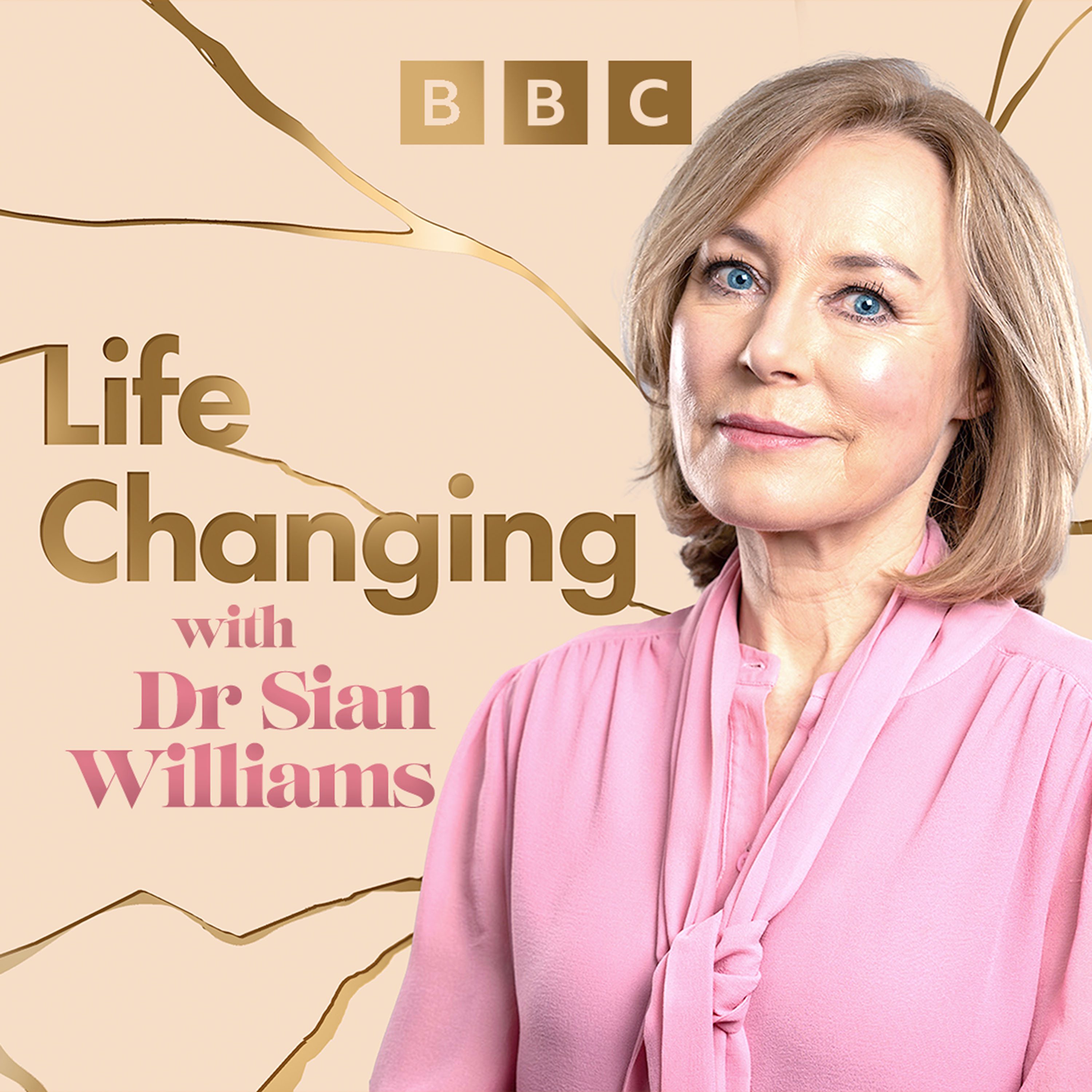
Life Changing
BBC Radio 4
Tech Life
BBC World Service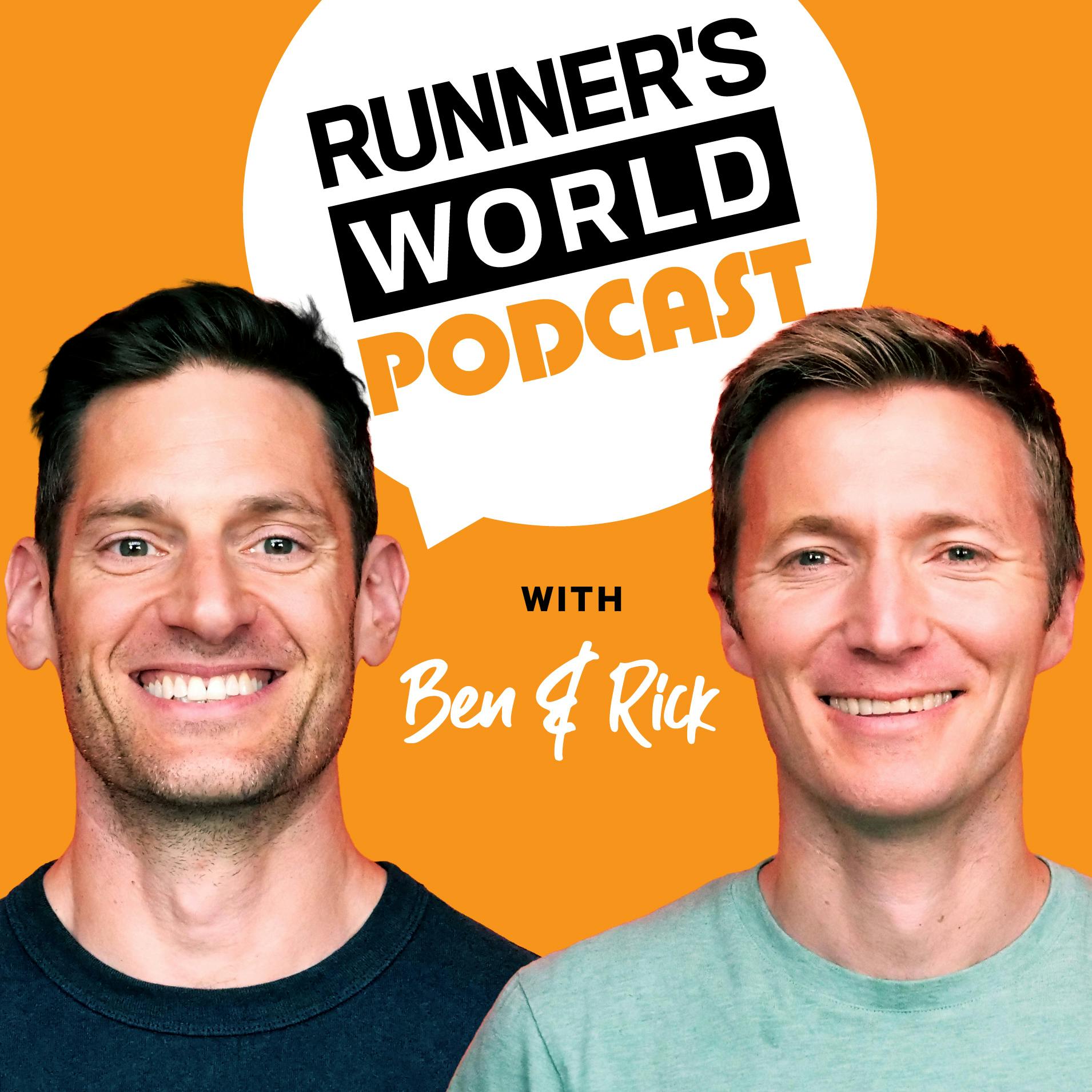
Runner's World Podcast
Runner's World UK
Buzzcast
Buzzsprout
Newscast
BBC News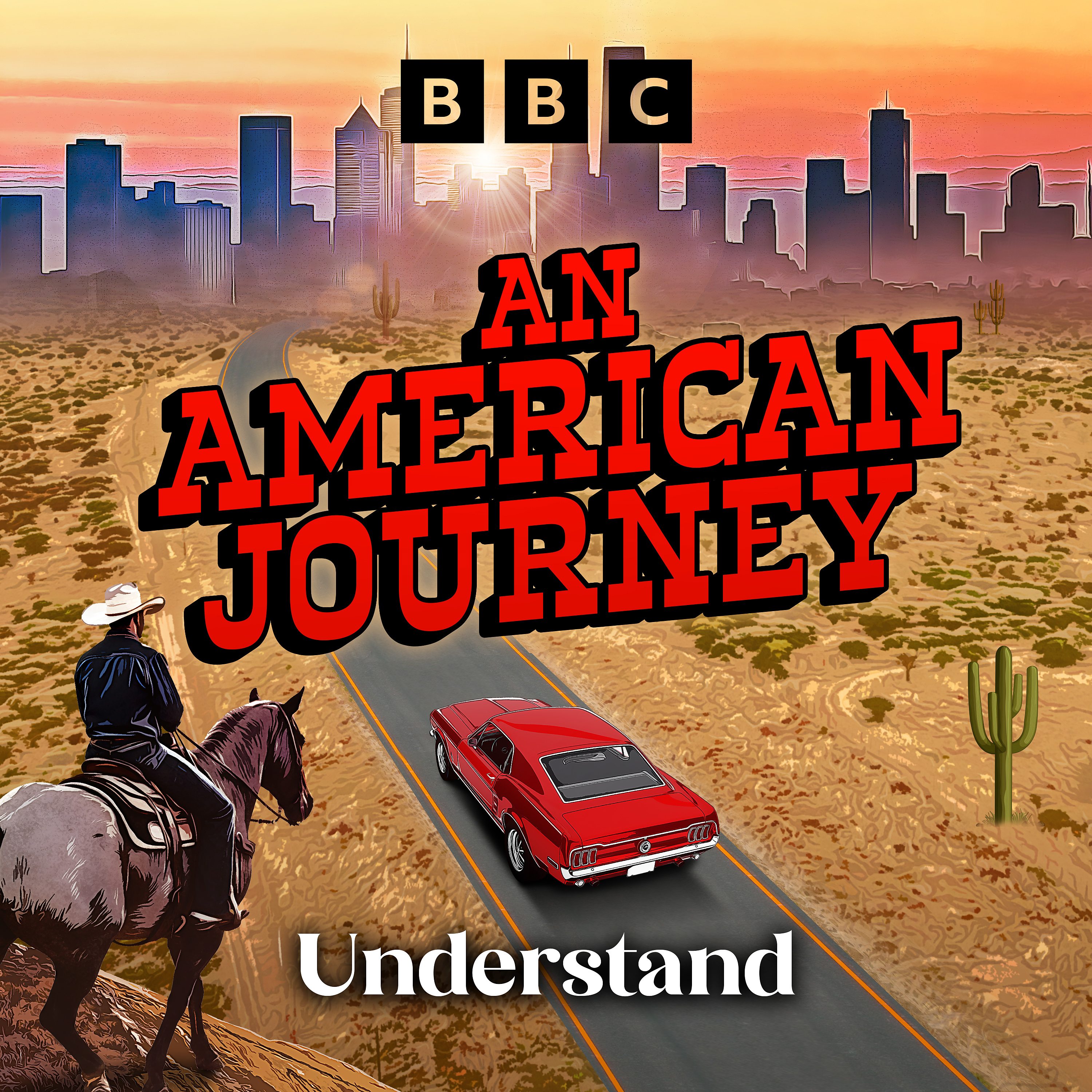
Understand
BBC Radio 4
Cyber Hack
BBC World Service
Ghost Story
Audible| Pineapple Street StudiosDiz Runs Radio: Running, Life, & Everything In Between
Join Denny Krahe, AKA Diz, as he talks with a variety of runners about running, life, and everything in between.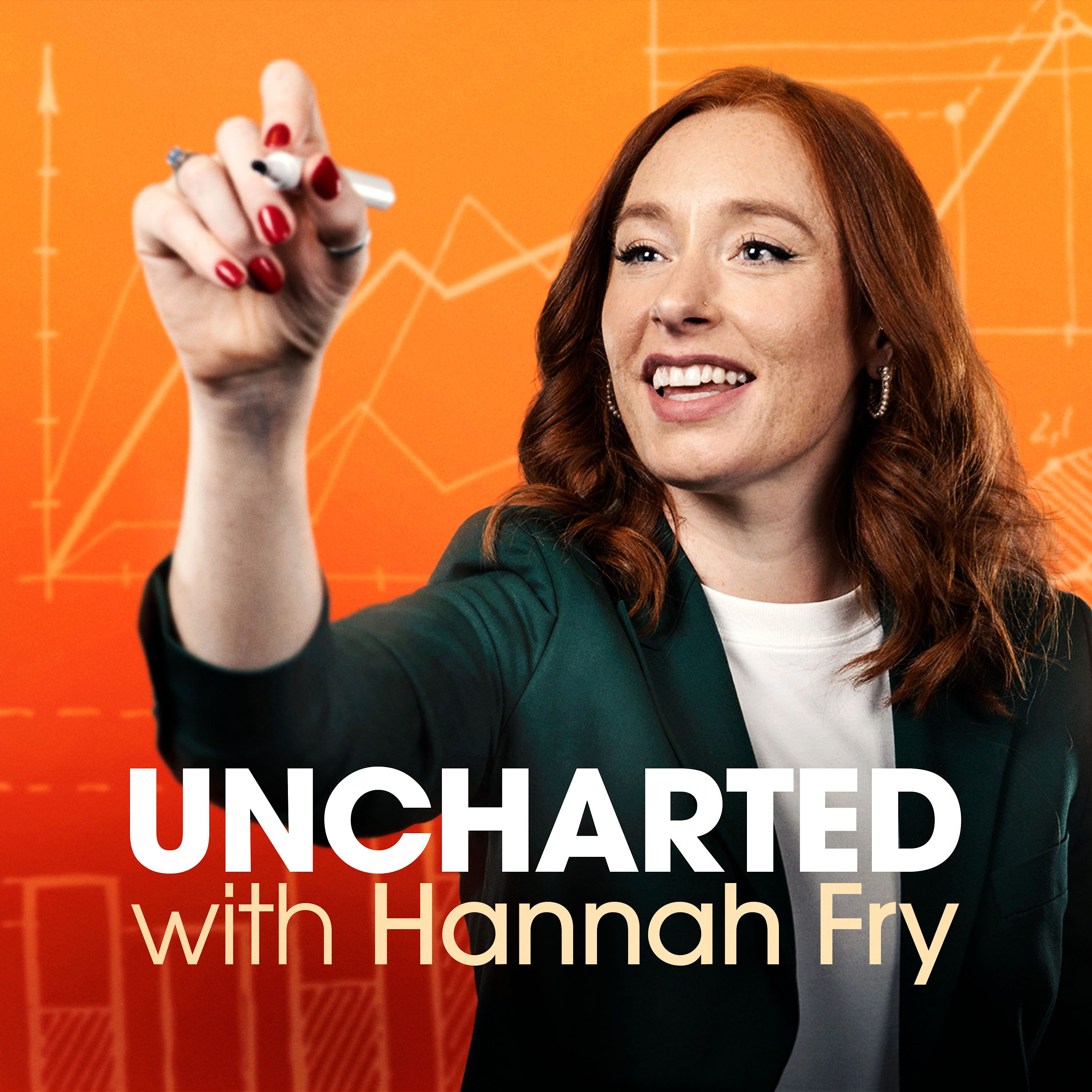
Uncharted with Hannah Fry
BBC Radio 4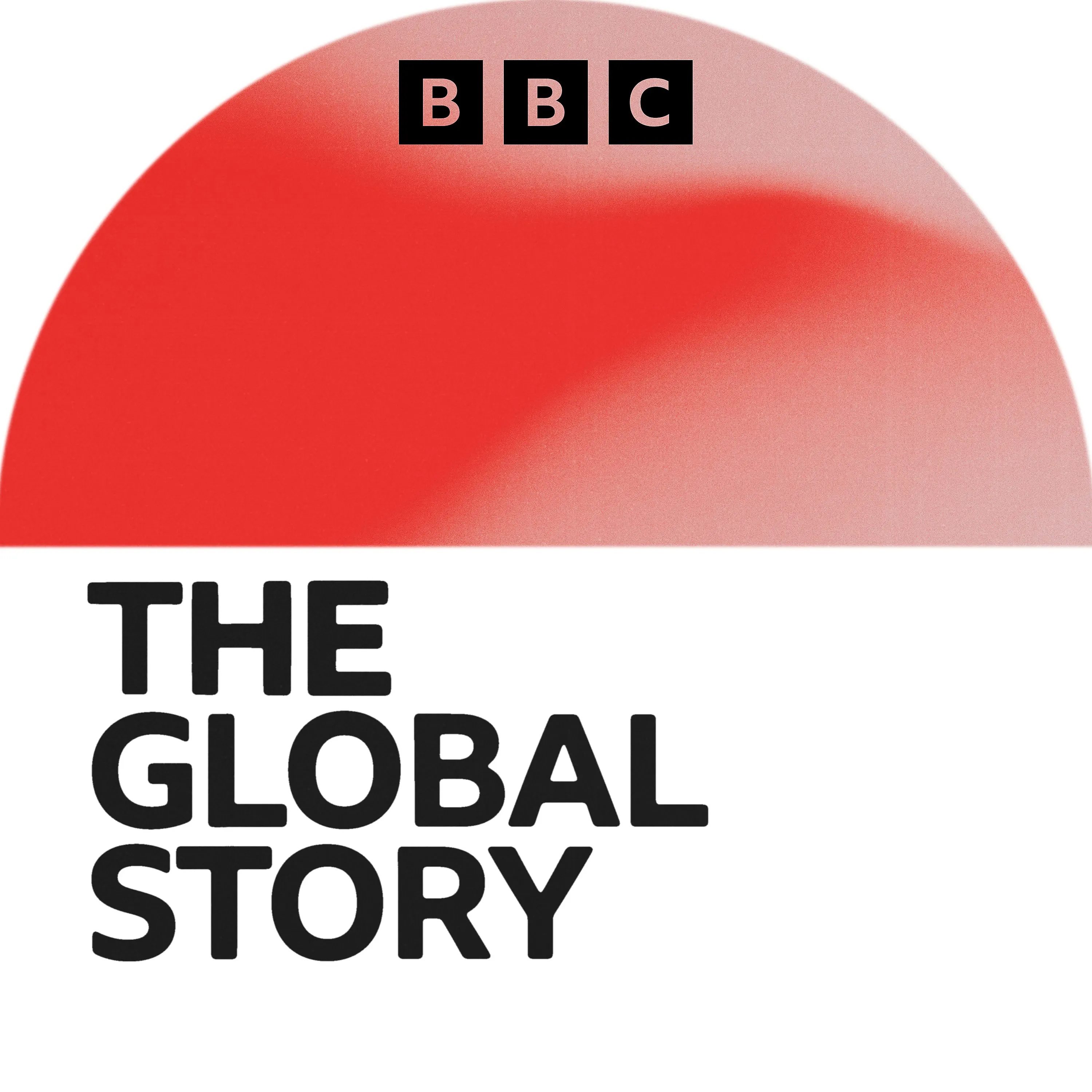
The Global Story
BBC World Service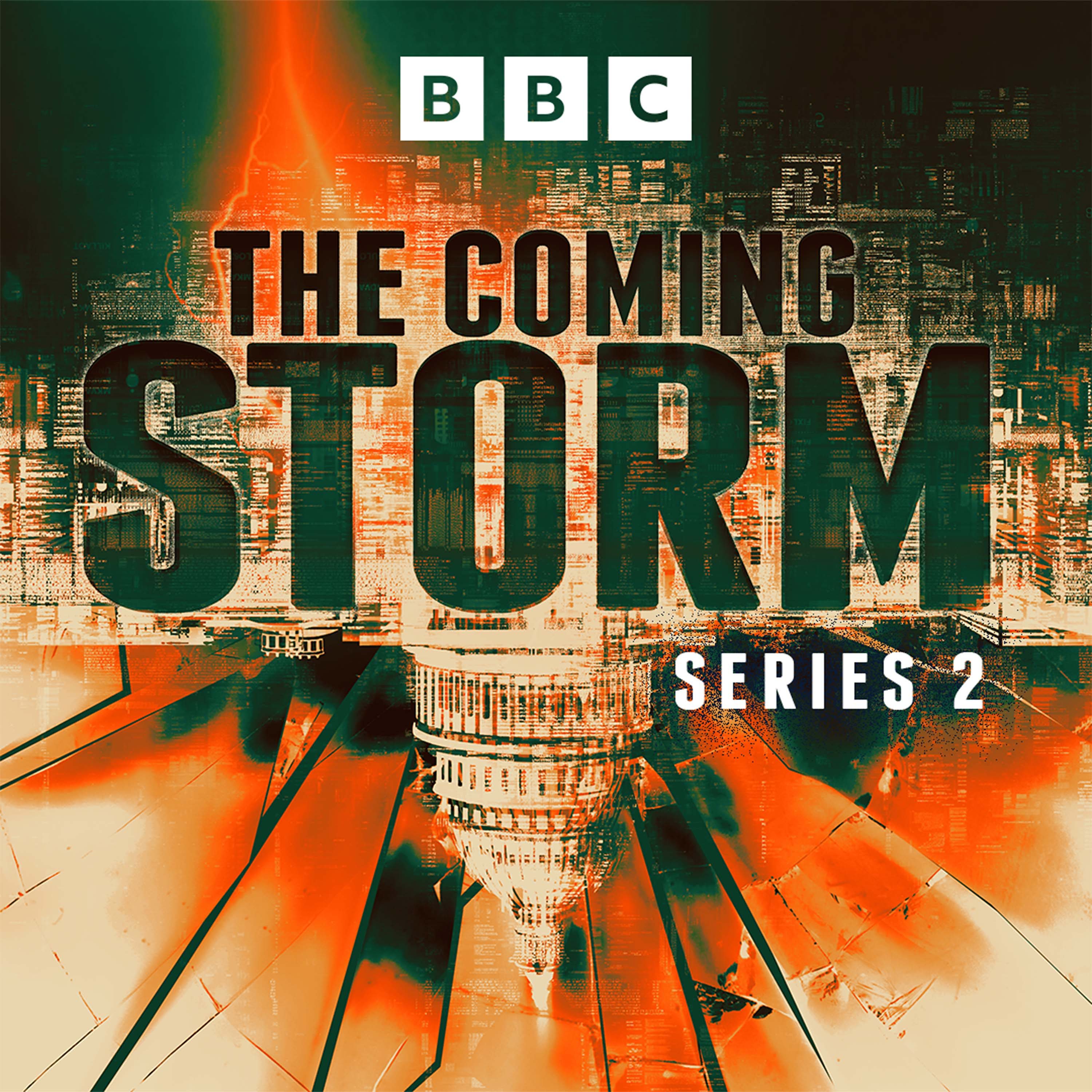
The Coming Storm
BBC Radio 4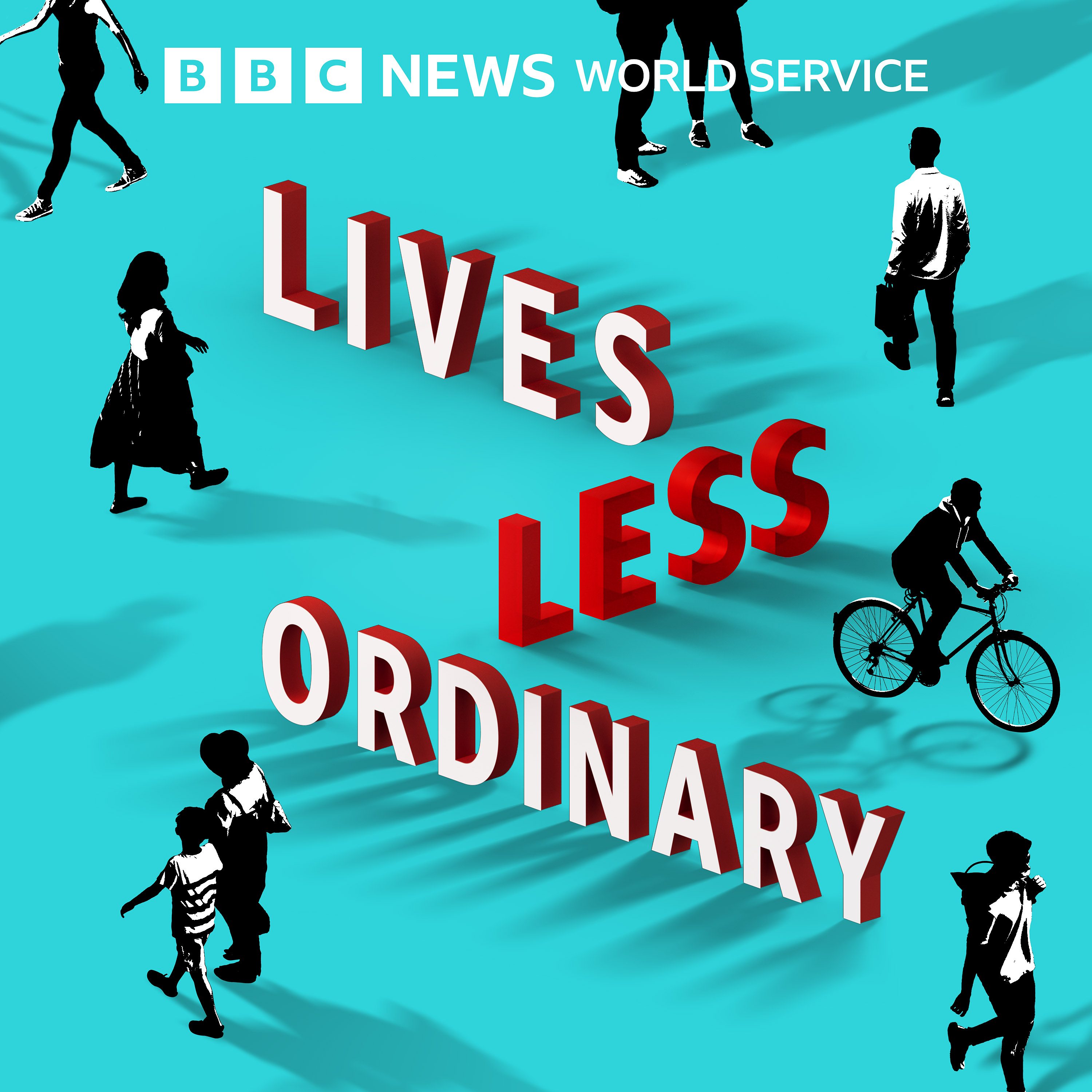
Lives Less Ordinary
BBC World Service
Do Epic Shit Today Podcast
Hannah Mulhern
The Rest Is History
Goalhanger
